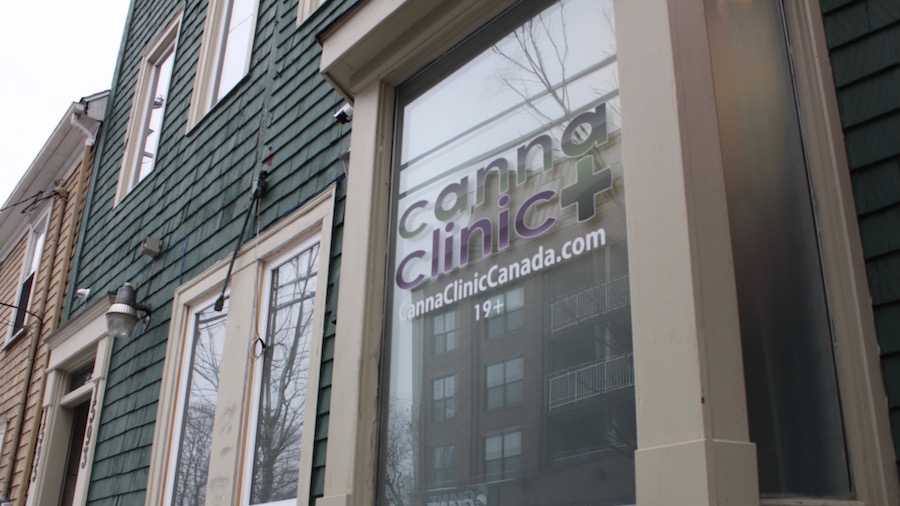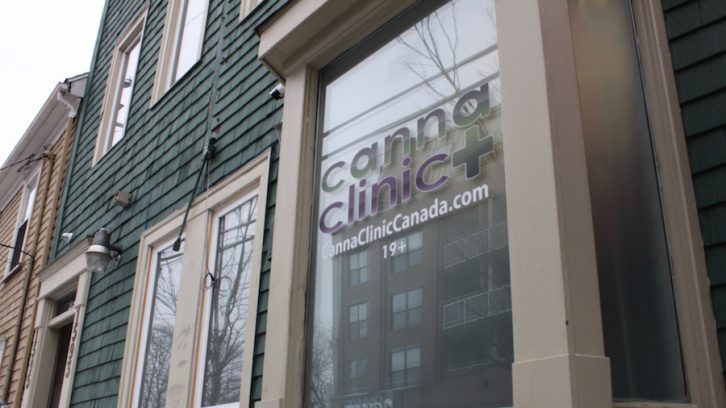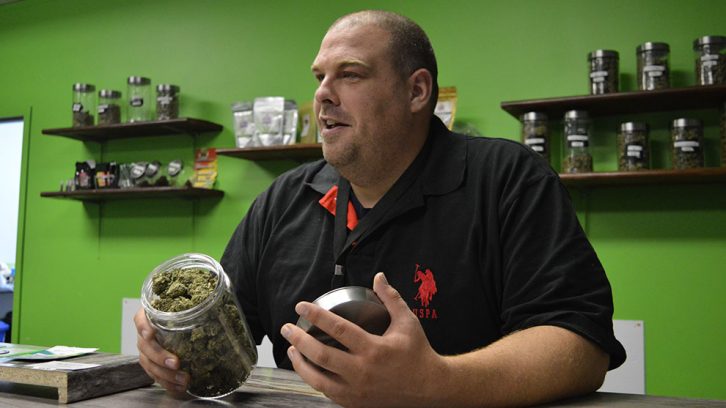MARIJUANA
Medical marijuana dispensaries: the legalities and loopholes behind this budding industry
Learn about running a controversial business

caption
Canna clinic on Dresden Row is on Weedmaps. Daily deals are advertised on the websiteTwo years ago, buying weed in Halifax involved messaging a supplier and organizing a discreet meetup. Today, Weedmaps, a website providing a map of marijuana dispensaries, will lead you right to a dispensary door.
The Halifax Regional Municipality is now home to over 12 medical marijuana dispensaries ranging from chains to independent shops.

caption
Canna clinic on Dresden Row is on Weedmaps.The shops sell cannabis and other cannabis products like resin, oils and edible goods to medical marijuana patients.
Canada has seen a spike in medical marijuana dispensaries since the federal Liberal government said it would legalize marijuana when elected in 2015. A bill regarding legalization is expected to be looked at in the spring.
The medical marijuana dispensaries see themselves as just like any other business, though what they’re doing is still illegal.
“I’m a registered business,” said Mal McMeekin, owner of the Tasty Budd’s chain of stores. “We have GST; we pay GST.”
Current federal law says only licensed producers are legally permitted to grow and sell medical marijuana. There are 40 licensed producers in Canada, none of which are in Nova Scotia.
This means medical marijuana patients in the province must go through a mail order system, but this system isn’t always reliable. Sometimes product is out of stock, or the order arrives late. Going to a dispensary is a way to get around this.
How do dispensaries open?
So if drug trafficking is still a crime, how are these dispensaries even open?
McMeekin has three locations in the HRM. He said the first step is finding a landlord who is willing to have a dispensary on their property.
“Fortunately for us, we do have a few landlords in the city who are really awesome,” said McMeekin. “They’re totally on our side with this.”

caption
Mal McMeekin sells medical marijuana to patients in need.Chris Enns, owner of Gottingen Street dispensary Farm Assists, said finding this type of landlord is no easy task.
“I must have spent a year talking to landlords trying to find a place,” said Enns.
The HRM requires all businesses to obtain an occupancy permit, but it won’t issue one to medical marijuana dispensaries.
“We have not and would not offer an occupancy permit to any marijuana dispensary, medical or otherwise,” said HRM spokesperson Tiffany Chase.
Farm Assists does have an occupancy permit, which Enns said was obtained honestly and fairly.
Chase questions the transparency of the application.
“I don’t know what their permit is listed for,” said Chase. “It’s not been uncommon that we’ve received permit applications describing a business inaccurately.”
What are the risks?
Dispensaries operating in the HRM run the risk of being raided and shut down. Some owners even risk jail time.
“I’ve done a weekend in jail every year for three years now,” said Enns who was arrested each time his store was raided between 2013 and 2015.

caption
Chris Enns has been arrested three times while running Farm Assists.“We’ve had three separate police raids and each time they take your entire inventory … that makes it very difficult to stay afloat.”
Halifax Regional Police will only conduct a raid if a complaint is made, said Const. Dianne Penfound, a spokeswoman for the HRP. The police are aware of the dispensaries, but they are not a priority.
Enns said dispensary owners must face the dangers of legal backlash in this industry.
“People have to be willing to go behind bars and stay behind bars,” he said.
Are they legitimate?
Enns said his business is just like any other business; he has a permit, pays his taxes — he even has an accountant.
Even though the unlicensed dispensaries are illegal, the Federal Court of Appeal decided to uphold the government’s right to collect taxes on them. This obviously upsets dispensary owners.
“If they’re willing to take our money then they should be willing to let us do our business,” said McMeekin, who is fighting for an occupancy permit for one of his stores with the HRM.
“I think it’s a double standard,” he said. “We’re more than willing to pay the tax and do our part. I just feel if the government is accepting our money then how can you say what we’re doing is wrong?”
The marijuana industry has peaked the interest of investors too. As legalization looms, economists are projecting how profitable the industry will be. A 2016 Deloitte report estimates $5 billion per year will be made on recreational marijuana sales alone.
Who do they help?
Investors are keeping an eye on this promising industry for financial opportunities, but dispensary owners say they are more concerned with providing medicine to people in need.
“We have thousands of patients who rely on our store and they come to us daily,” said McMeekin. “And if they come to the store and we’re not there then they are out of medication.”
Dispensary owners maintain they are acting according to their rights under the Canadian Charter by providing reasonable access to medication.
Alexander MacKillop, McMeekin’s lawyer, said the medical marijuana community relies on storefront dispensaries.
“Dispensaries are open because of the people,” he said, adding that he helps hundreds of patients access their medicine.
“They’re showing us every day, with their wallet and their feet, that people need dispensaries.”

